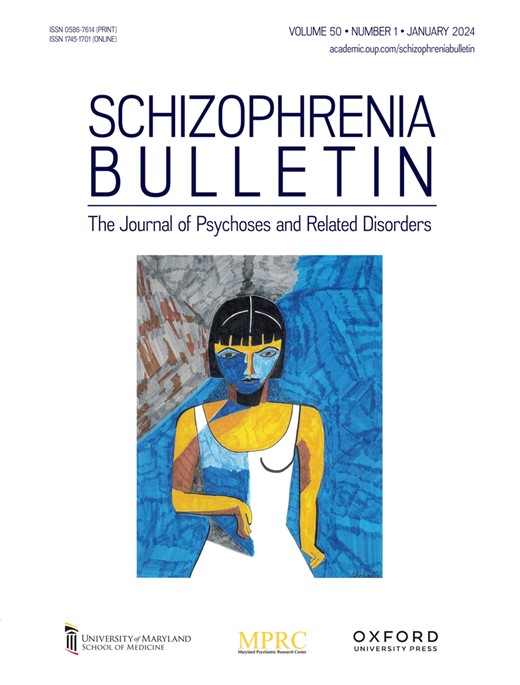62 EFFECT OF CONTEMPORARY LITERATURE COMBINED WITH PSYCHOTHERAPY ON THE MENTAL HEALTH OF PEOPLE WITH MENTAL ILLNESSES
IF 5.3
1区 医学
Q1 PSYCHIATRY
引用次数: 0
Abstract
Background Schizophrenia, a chronic and disabling mental illness, affects approximately 1% of the world’s population. It is characterised by a range of symptoms including hallucinations, delusions, disturbed thinking and cognitive impairment. The traditional approach to treating schizophrenia has centred on antipsychotic medications and various forms of psychotherapy. However, recent research suggests that supplemental therapies such as complementary therapies supplemented with contemporary literature can enhance the effectiveness of traditional treatments by improving cognitive functioning and mood regulation. The aim of the study was to investigate the impact of integrating contemporary literature into psychotherapy on mental health outcomes for patients with schizophrenia. Methods A randomised controlled trial of 120 participants with schizophrenia diagnosed at our institution were selected for the study. All participants were divided into a control group and an intervention group of 60 participants each. The control group received standard treatment (antipsychotic medication and traditional psychotherapy) and the intervention group received the same standard treatment and a programme treatment involving reading and discussing contemporary literature. The intervention group participated in weekly programme treatments, reading and discussing selected works, focusing on themes related to mental health and personal experiences. The study used the Positive and Negative Symptom Scale (PANSS), the MATRICS Consensus Cognitive Battery (MCCB), and the Difficulties in Emotion Regulation Scale (DERS). Emotion Regulation Scale (DERS) were conducted to assess participants’ cognition and emotion. The entire experimental period was 12 months. Results Positive symptoms (hallucinations and delusions) decreased by 25% (P<0.05) and negative symptoms (social withdrawal and emotional flatness) decreased by 30% (P<0.05) in the intervention group after 12 months. Cognitive functioning in the intervention group as measured by the MCCB improved by 15% (P<0.05) compared to the control group. Emotion regulation in the intervention group improved DERS scores by 20% compared to the control group (P>0.05). The results showed that there was a correlation between the level of engagement with literature and the improvement of participants’ symptoms and cognitive functioning (R=0.56, P<0.001). Specific results are shown in Table 1. Discussion Findings suggest that integrating contemporary literature into psychotherapy can significantly improve mental health outcomes for people with schizophrenia. Using literature as a therapeutic tool appears to enhance emotional expression and cognitive engagement, leading to better symptom management and improved social functioning. The study highlights the potential of complementary therapies in mental health treatment and calls for further research into how literary engagement affects cognitive and affective processes in people with schizophrenia.求助全文
约1分钟内获得全文
求助全文
来源期刊

Schizophrenia Bulletin
医学-精神病学
CiteScore
11.40
自引率
6.10%
发文量
163
审稿时长
4-8 weeks
期刊介绍:
Schizophrenia Bulletin seeks to review recent developments and empirically based hypotheses regarding the etiology and treatment of schizophrenia. We view the field as broad and deep, and will publish new knowledge ranging from the molecular basis to social and cultural factors. We will give new emphasis to translational reports which simultaneously highlight basic neurobiological mechanisms and clinical manifestations. Some of the Bulletin content is invited as special features or manuscripts organized as a theme by special guest editors. Most pages of the Bulletin are devoted to unsolicited manuscripts of high quality that report original data or where we can provide a special venue for a major study or workshop report. Supplement issues are sometimes provided for manuscripts reporting from a recent conference.
 求助内容:
求助内容: 应助结果提醒方式:
应助结果提醒方式:


